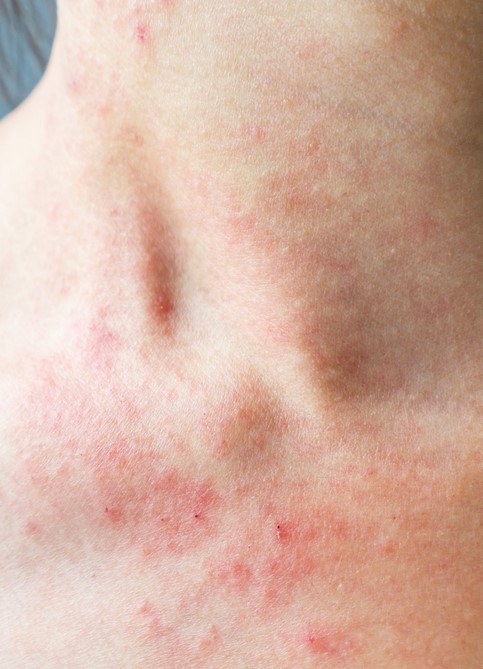Understanding and Managing Dark Skin from Eczema
Author : Phoebe Owen | Published On : 23 Apr 2024
Eczema, a chronic and inflammatory skin condition, affects millions of people worldwide, with variations in its manifestation based on skin type. When it comes to dark skin, eczema presents a unique set of challenges, often complicating diagnosis and treatment. In this comprehensive guide, we delve into the nuances of dark skin from eczema, exploring the symptoms, triggers, and effective management strategies.
What is Eczema?
Eczema, also known as atopic dermatitis, is a common condition characterized by inflamed, red, and itchy skin. It affects people of all ages but is particularly prevalent in children. Eczema can occur on any part of the body and is often associated with other allergic conditions, such as asthma and hay fever.
Symptoms of Eczema on Dark Skin
Eczema manifests differently on dark skin compared to lighter skin tones, making it crucial to recognize the symptoms specific to dark skin. The following are common symptoms of eczema on dark skin:
- Hyperpigmentation: Dark patches on the skin
- Hypopigmentation: Light patches on the skin
- Inflammation: Swelling and redness
- Dryness: Excessive dry skin, sometimes leading to flaking or scaling
- Itchiness: Persistent itching, which can worsen at night
Factors That Trigger Eczema on Dark Skin
Various factors can trigger or exacerbate eczema flare-ups on dark skin. Identifying and managing these triggers are crucial for effective eczema management. Common triggers include:
- Environmental Factors: Allergens, such as pollen, pet dander, or mold
- Irritants: Harsh soaps, detergents, or cleaning products
- Stress: Emotional stress or anxiety can trigger eczema flare-ups
- Diet: Certain foods, such as dairy, eggs, or nuts, may worsen symptoms
- Climate: Dry or cold weather conditions can lead to skin dryness and irritation

Managing Eczema on Dark Skin
1. Proper Skincare Routine
Establishing a skincare routine tailored to dark skin affected by eczema is essential for managing symptoms and preventing flare-ups. Here are some tips for an effective skincare routine:
Gentle Cleansing
- Use mild, fragrance-free cleansers: Harsh soaps can strip the skin of its natural oils, leading to dryness and irritation.
- Avoid hot water: Opt for lukewarm water when bathing or showering, as hot water can further dry out the skin.
Moisturization
- Regular moisturizing: Apply a thick, emollient-rich moisturizer immediately after bathing to lock in moisture.
- Choose fragrance-free products: Fragrances can irritate the skin and worsen eczema symptoms.
- Consider ointments or creams: These are often more effective than lotions for moisturizing dry skin.
Sun Protection
- Use sunscreen: Protect your skin from the sun's harmful UV rays by applying a broad-spectrum sunscreen with an SPF of 30 or higher.
2. Identify and Avoid Triggers
Identifying and avoiding triggers is crucial for managing eczema on dark skin. Keep a trigger diary to track flare-ups and identify patterns. Once triggers are identified, take steps to avoid or minimize exposure to them.
3. Clothing and Fabrics
Choosing the right clothing and fabrics can help reduce irritation and prevent flare-ups. Opt for loose-fitting, cotton clothing, which allows the skin to breathe and reduces friction.
4. Stress Management
Stress is a common trigger for eczema flare-ups. Engage in stress-reducing activities such as yoga, meditation, or deep breathing exercises to help manage stress levels.
5. Medical Treatments
In addition to a proper skincare routine and trigger management, medical treatments may be necessary to manage eczema on dark skin effectively. Consult a dermatologist for prescription medications such as:
- Topical corticosteroids: These reduce inflammation and itching.
- Calcineurin inhibitors: These medications help to suppress the immune response in the skin.
- Antihistamines: These can help relieve itching and improve sleep quality.
6. Natural Remedies
Several natural remedies can complement medical treatments for eczema on dark skin:
- Coconut Oil: Applying coconut oil to the affected areas can help soothe and moisturize the skin.
- Oatmeal Baths: Taking oatmeal baths can provide relief from itching and inflammation.
- Aloe Vera: Aloe vera has anti-inflammatory properties that can help calm irritated skin.
7. Consultation with a Dermatologist
For severe or persistent eczema flare-ups on dark skin, it is essential to consult a dermatologist. A dermatologist can provide a personalized treatment plan tailored to your specific needs.
Frequently Asked Questions (FAQs)
Q: What is eczema?
A: Eczema, also known as atopic dermatitis, is a chronic and inflammatory skin condition characterized by inflamed, red, and itchy skin.
Q: How does eczema affect dark skin?
A: Eczema on dark skin may present with hyperpigmentation, hypopigmentation, inflammation, dryness, and persistent itching.
Q: What triggers eczema on dark skin?
A: Common triggers include environmental factors (allergens), irritants (harsh soaps, detergents), stress, diet, and climate conditions.
Q: How can I manage eczema on dark skin?
A: Managing eczema on dark skin involves establishing a proper skincare routine, identifying and avoiding triggers, choosing appropriate clothing and fabrics, stress management, medical treatments, and natural remedies.
Conclusion
In conclusion, dark skin from eczema presents unique challenges, but with the right approach, it can be effectively managed. By understanding the symptoms, triggers, and management strategies outlined in this guide, individuals with eczema can take control of their condition and enjoy healthier, more comfortable skin.
